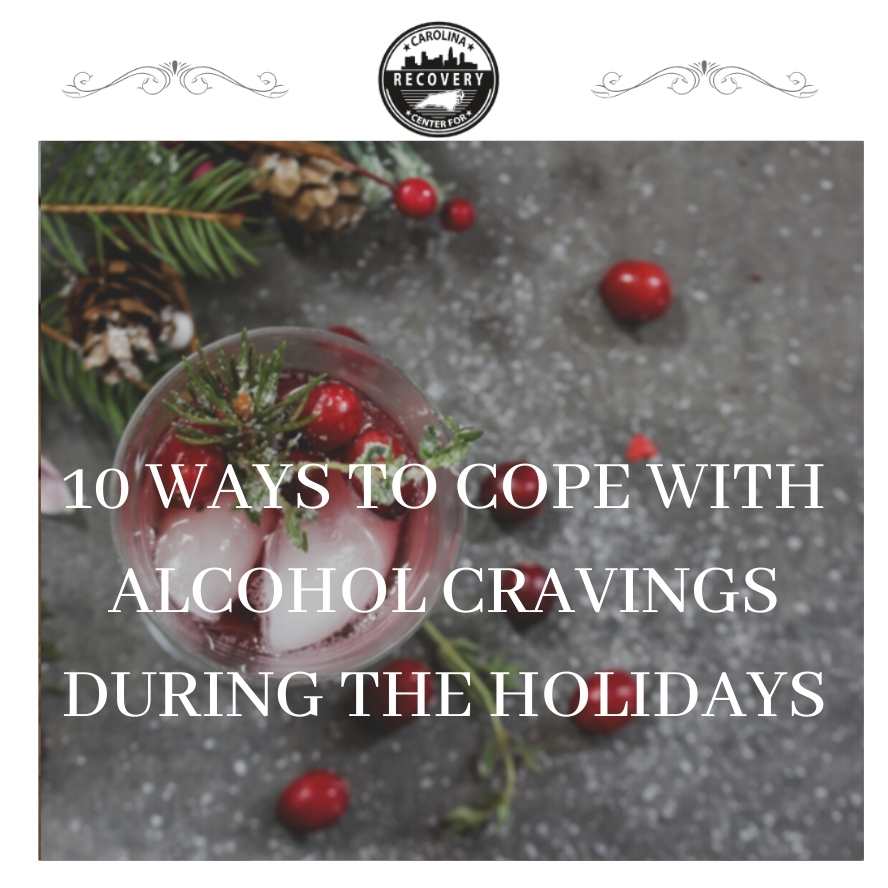10 Ways to Cope With Alcohol Cravings During the Holidays

Medically Verified: 2/1/24
Medical Reviewer
Chief Editor

All of the information on this page has been reviewed and verified by a certified addiction professional.
For many individuals, the holidays signify a time to eat, drink, and be merry. But what if you are in recovery from alcoholism? For people in recovery from alcohol addiction, the holiday season of cocktail parties, dinners, and good times may be tough to navigate. Additionally, the stress-filled environment of the holiday season may trigger individuals in recovery to abuse substances as a means of coping. However, there are plenty of ways to cope with alcohol cravings during the holidays.
Let’s take a look at 10 ways to deal with alcohol cravings and avoid relapse during the holidays.
1. Plan Relapse-Avoidance Strategies for Each Day
It’s important to wake up each morning and prepare specific relapse prevention strategies for that day. During the holidays, many individuals partake in celebrations and gatherings that are out of the norm. Because of this, each day will require different relapse avoidance tactics. For example, if you are attending a holiday work party, you may be surrounded by alcoholic beverages. In this case, you should plan specific ways to avoid triggers, cravings, and consider creating an exit strategy in case managing your cravings becomes difficult.[1]
2. Evaluate Each Situation
Rank each situation during the holidays as low, medium, or high risk. In early recovery, spend more time in low-risk situations and avoid high-risk events. If you’re further into recovery and will be in a situation that is medium- or high-risk, such as a party with an open bar, you should rely on your relapse prevention plans. Oftentimes, it’s recommended to arrive early and leave early when attending parties that contain alcohol. Also, you should always drive your own car so that you can leave when you’re ready.
3. Bring Your Own Drinks
Oftentimes, unless you are attending a sober party, non-alcoholic beverages are scarce during the holidays. To avoid being tempted to drink, consider bringing your own drinks. For instance, if you used to drink eggnog during Christmas celebrations, consider bringing a non-alcoholic replacement.
4. Stay Aware of Your Triggers
While you should always be aware of your triggers to drink, it is especially important to be proactive in managing your triggers during the holidays. The most common triggers fall under the HALT acronym; when you are feeling hungry, angry, lonely, and tired. To avoid a relapse on alcohol during the holidays, make sure you take care of yourself physically, mentally, and emotionally.
5. Never Forget to Eat
Low blood sugar is known to cause anxiety and irritability. As a result, you may begin to feel impulsive and tempted by alcohol. Having a nutritious meal or snack every three hours will help you cope with your alcohol cravings during the holidays.
6. Practice Self-Regulation Skills for Anxiety
It is extremely common for individuals in recovery from alcoholism to relapse due to stress and anxiety. However, this is completely avoidable with a little bit of education, effort, and the use of self-regulation strategies.[2] When you begin to feel stressed during the holidays, take a few minutes to decompress by yourself and consider meditating or completing a short, anxiety-relieving activity. While doing this, push away the alcohol cravings.
7. Stay Distracted
It is common for individuals to struggle to cope with alcohol cravings during the holidays. With the stress and fast-paced energy of the holiday season, it’s important to stay distracted with positive things, rather than allowing your cravings to take over. It may be wise to take a friend or sober support with you to your holiday events. This way, you will be too distracted by having fun with your friends and family to think about having a drink.
8. Prepare Responses
There might be an instance where you are offered a drink during a holiday party, get-together, or dinner. As a result, you should be prepared in different ways to respond. If you are with people who do not know about your sobriety, you could use a discreet strategy to turn down drinks. For example, you could say that you have to drive home, have work in the morning, or simply do not feel like drinking. If you are okay with people knowing about your sobriety, consider telling them in a simple, yet effective manner. You might say something like, “Thank you for the offer, but I have been sober from alcohol for ‘x’ amount of time”.
9. Learn to Cope With Alcohol Cravings
Typically, cravings only occur for a short period of time. If you can hold out for 10-20 minutes, this should be a good sign that you are able to control your own alcohol cravings. However, it is important to be proactive in managing your cravings rather than simply ignoring them. For example, reaching out to sober support when you experience a craving for alcohol during the holidays is an effective way to cope.
10. Stay Connected With Your Support System
If you’re part of a support group, you should continue attending meetings during the holidays to stay on track. If you are traveling for the holidays, you can always research the best meetings in your area. You should remain close with friends, family, and individuals you’ve met during your recovery journey – even during the holidays.
Learn Coping Skills for Alcohol Cravings Today
The holidays can be a very stressful time for recovering alcoholics or active alcoholics. If you have suffered from a relapse or noticed that you have a problem with alcohol during the holidays, it may be time to attend professional alcohol addiction treatment. Make the decision to recover from alcoholism by contacting Carolina Recovery Center today for more information on rehab for alcohol.
References:

